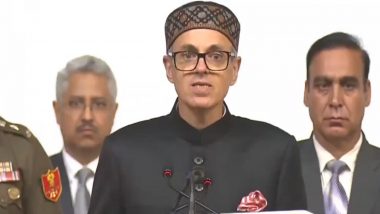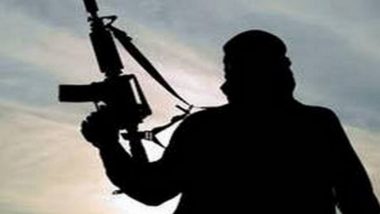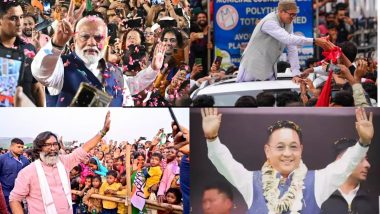London [United Kingdom], May 2 (ANI): An expert on South Asia has claimed that the British leadership of the late 1970s and early 1980s and not the 9/11 tragedy was primarily responsible for the cross-fertilisation of violent extremism across the world.
Participating in a day-long conference on the theme of "Terrorism in Jammu and Kashmir" organised jointly by the European Foundation for South Asian Studies (EFSAS) and the University of Leicester United Nations Society, Dr. Paul Stott, who has written a number of books on jihadism, said terrorism in Jammu and Kashmir started with a visit to Pakistan in 1981 by then British Prime Minister Margaret Thatcher.
Dr. Stott, a lecturer at the University of Leicester and in the Centre for International Studies and Diplomacy at SOAS, University of London, revealed that Pakistan at that time was passing through a phase of aggressive Islamisation, and added that Prime Minister Thatcher's then meeting with Pakistan dictator General Zia-ul-Haq, was seen by observers and analysts in both countries as Britain's endorsement of "intense Islamisfication", and as a struggle against Communism in Afghanistan.
Coming specifically to the issue of the British-South Asian Jihadist nexus, Dr. Stott used the platform of the conference to give a detailed historic outline of the cross-fertilization of violent extremism in South Asia as well as in Europe.
He made references to the role played by established Islamist hate mongers such as Anjum Choudhury, who was one of the founders of the banned terrorist outfit Äl Magrib", and who was convicted for advocating support for the Islamic State of Iraq and the Levant (ISIL), more popularly known as the Islamic State (IS), or Abu Izzadeen, born Trevor Richard Brooks, the British spokesman for Al Ghurabaa, a British Muslim organisation banned under the Terrorism Act 2006 for the glorification of terrorism.
Brooks was convicted on charges of terrorist fund-raising and inciting terrorism overseas in 2008. He was imprisoned for four and a half years in 2006, but released in May 2009. In January 2016, he was sentenced to two years in prison for breaching the Terrorism Act 2000 by leaving the UK illegally.
A mention was also made of 27-year-old Khuram Shazad Butt, the man responsible for last year's London Bridge terror attack that claimed the lives of seven people and left 48 injured, and how he as a British citizen, had received training in Kashmir.
Dr. Stott further highlighted this British-South Asia jihadi nexus by making a mention of the 1993 UK speaking tour of Masood Azhar of the then Harkat ul-Ansar Islamist outfit, which received the support of leading British Deobandis. He said that during that visit Azhar promoted the concept of Jihad, which young Britons should undertake, and this in turn, resulted in the involvement of Omar Saeed Sheikh, a British national, kidnapping British tourists in New Delhi in 1994.
Dr. Stott said that in 1997, when the Muslim Council of Britain (MCB) was established, it exhibited a very deep Jamaat-e-Islami influence and openly supported the armed struggle in Jammu and Kashmir, and lobbied hard against UK counter-terrorism policies.
He said the first British suicide bomber in Afghanistan was Birminham-born Khalid Shaheed. He said that the suicide attack on an Indian Army base in Srinagar in the year 2000 was carried out by Mohammed Bilal, a resident of Birmingham, who was affiliated to the Jaish-e-Muhammad.
The 2002 kidnapping and murder American journalist Daniel Pearl in Karachi was the work of Omar Saeed Sheikh.
Dr. Stott used his lecture to provide a list of attacks and thwarted plots in the UK with connections to South Asia in general and Pakistan in particular, namely the Operation Crevice case in 2003, the London Transport Bombings (7/7) in 2005, the Botched 21/7 bombings, the Liquid Bomb Plot in 2006, the Exeter Restaurant bombing in 2008 and the 2009 Manchester Arndale Centre plot.
Following his extensive historical analysis, Dr. Stott posed a vital question -- When the Jihadists are defeated in Syria and Iraq, where will their attention turn to next? He expressed the fear that Jammu and Kashmir may possibly be the next battlefield for these hardened terrorists. (ANI)
(This is an unedited and auto-generated story from Syndicated News feed, LatestLY Staff may not have modified or edited the content body)








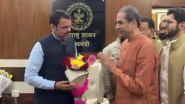
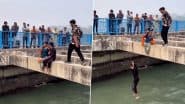



 Quickly
Quickly










